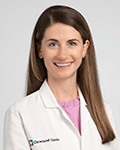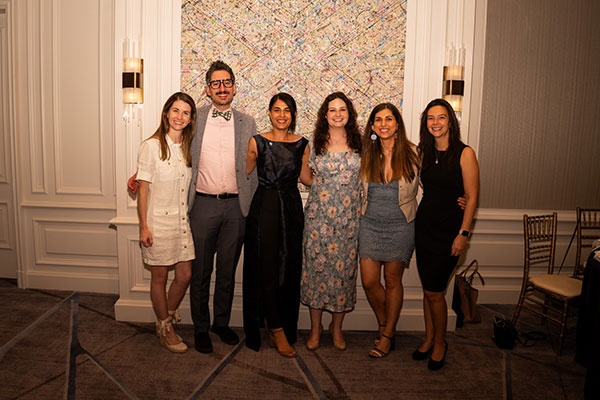Overview
The Child and Adolescent Psychiatry training program is a two-year, ACGME approved program that integrates experience in an acute setting with comprehensive ambulatory training. Our staff are specialized in many areas, such as complex medical issues, autism, suicide prevention, acute care psychiatry, LGBT care, mood disorders, school mental health, and clinical research. Exceptional lectures, personalized supervision, research opportunities, and a large range of clinical settings provide a comprehensive training foundation for the new generation of child and adolescent psychiatrists.
Goal
To develop you into a compassionate, committed, evidence-informed, resiliency-focused, developmentally aware, educated, astute, community-engaged and resourceful child and adolescent psychiatrist. Our foundational value is to create the most effective clinician who remains a life-long learner and teacher committed to the profession of medicine, advancement of critical investigation and study within the field, and engaged in meaningful service and health promotion within their community.
Curriculum
Structure
The Child and Adolescent Psychiatry fellowship consists of a two-year curriculum divided into modules lasting four weeks each. Residents may enter any time after completing the PGY-3 level. Our program is primarily a clinical program with opportunities with clinical research and scholarly development.
Fellows work closely with the attending psychiatrists, therapists, social workers, psychologists, primary care collaborating doctors and nurses, and nursing to provide comprehensive patient care. In a rapidly changing world, our program strives to adapt to innovative access to care, including telepsychiatry and consultation within primary care clinics. Our program structure is well-developed and also able to be adapted to the needs of each fellow.
PGY-4
During the first year, fellows will alternate five modules on our acute child and adolescent inpatient psychiatric inpatient unit, five modules on our child and adolescent consult liaison service, and three modules in a variety of ambulatory settings with time for shadowing and exposure to psychotherapy.
The goals for the fellow will be to master comprehensive interview techniques, understand evidence-based treatment strategies for complex cases, and work in a multidisciplinary setting. While on the inpatient unit, the fellow will be assessing complex psychiatric disorders and improving ability to integrate evidence-based psychopharmacology with supportive therapy in a multidisciplinary setting. During the consultation liaison rotation, the fellow will be introduced to inpatient pediatric units, including the epilepsy monitoring unit, the pediatric intensive care unit, emergency department consultations as well as pediatric subspecialty patients in hematology, oncology, and transplant services.
Throughout the first year, fellows participate in a longitudinal outpatient care track where the fellow will develop skills in managing an outpatient clinical caseload. The fellow again will be the primary contact for the family and have the autonomy to manage patients under the supervision of CAP attendings. Dedicated time is given for outpatient clinical days to enhance continuity of care and the educational experience.
PGY-5
The focus shifts in year two to a more ambulatory and community setting. Fellows also return to complete alternating 3 modules in the inpatient and consultation setting as junior attendings functionally “managing” the services.
In the second year, the fellows continue their longitudinal outpatient care track through their continuity clinic with the addition of a 2nd community continuity clinic at a local FQHC (Neighborhood Family Practice). At this site, they provide collaborative care with family medicine and work in an integrated behavioral health team. We treat patients from all backgrounds.
Training throughout this year is focused on outpatient and specialized services. Fellows spend time each week working in school mental health and/or psychotherapy where they have supervision of their own longitudinal psychotherapy patients. The fellow will receive exposure to pediatric neurology, mood disorder intensive outpatient programs, group CBT/DBT skills, neuropsychology testing clinic, child and adolescent chemical dependency, eating disorders and adolescent medicine, developmental pediatrics, Hanna Perkins (a psychoanalytic therapeutic school), and Cleveland Clinic's Center for Autism.
In these settings the fellow will gain valuable experiences outside of the Cleveland Clinic campus. These rotations provide a deeper connection and understanding of the system of services available to patients through multidisciplinary teams. There is also dedicated elective time for subspecialties of the fellow’s choice.
Research Opportunities
A multitude of clinical research opportunities are available throughout the Department of Psychiatry and Psychology and within the Children’s Institute. Each fellow is required to complete an annual academic project throughout his or her tenure within this program which includes a Grand Rounds presentation during the PGY5 year.
Scholarly work also consists of a poster presentation and/or journal submission. Fellows have access to research skills training, IRB submission process, and quality improvement initiatives. The Cleveland Clinic offers extensive resources and advanced research skills training for self-directed fellows.
If the fellow is more clinically focused, he or she has the option of developing a relevant didactic to present to the section.
Education
Fellows have dedicated time for didactics ½ day a week. These didactics are presented by psychiatry, psychology and specialized medical staff. The Psychiatry and Psychology Departmental grand rounds are held weekly on Thursday.
The Children’s Institute also often holds Grand Rounds that are relevant to fellowship trainees. The didactic schedule covers basic tenets of child and adolescent development, learning and family systems, trauma and environmental roots of mental illness, psychopathology, biologic treatment, pharmacologic and non-pharmacologic interventions, and psychotherapeutic interventions as well as more specialized lectures. All faculty participate in these lectures providing a breadth of exposure to different teaching styles.
Case conferences are held regularly and include all fellows and faculty. Supervision over all trainee patient care is provided on a one-to-one basis by staff attendance. Education is given priority in all cases over service demands in our program. There is ample protected time for self-study and independent project development across the two years of training.
Training
The Child and Adolescent Psychiatry Department not only participates in the training of child and adolescent psychiatry residents, but also fosters the education of general adult psychiatry residents from Cleveland Clinic (Cleveland and Akron General) and the MetroHealth Healthcare System, pediatric neurology residents, primary care providers including general pediatrics and family medicine residents.
Medical students from Cleveland Clinic's Lerner College of Medicine and Case Western Reserve University and Ohio University College of Medicine also regularly rotate through our program. Fellows are actively involved and highly valued in the training and teaching of these medical students and residents.
We believe strongly that child psychiatry must become integrated with primary care. Our fellows and staff are often asked to provide didactics for other programs, including pediatrics, family medicine, and more.
Our Faculty
A message from our Program Director, Dr. Molly Wimbiscus
Dear Prospective Fellow,
Welcome to the Cleveland Clinic Child and Adolescent Psychiatry Fellowship Program! We're delighted that you're considering joining our community on the all-season shores of beautiful Lake Erie. Our fellowship offers the chance to train in a supportive environment, working with experienced professionals dedicated to the well-being of children and adolescents.
Here, you'll find a wealth of clinical experience, community engagement, research opportunities, and tailored mentorship to support your growth and development. As a large, international hospital enterprise, CAP Fellows are privileged to work with remarkable colleagues and interdisciplinary teams from all over the world. Institutional and regional resources are available to develop our fellows’ areas of interest. Fellows enjoy rigorous internal and external clinical rotations over the two-year training program. Longitudinal projects may include clinical, quality, community or research foci. Additionally, the Cleveland Clinic provides many supports for research and professional networking.
We are committed to fostering a challenging and fun learning atmosphere, where you can develop the skills and knowledge needed to excel as a child and adolescent psychiatrist. Our program has graduated astute doctors for over twenty years, and we strive to maintain our clinical excellence while also growing with each class to best meet their professional goals and training needs.
We espouse that the art of medicine is equally as important to master as the science. As Sir William Osler said: “The practice of medicine is an art, not a trade; a calling, not a business; a calling in which your heart will be exercised equally with your head." We hope this calls to you, and we look forward to the possibility of having you with us!
Sincerely,
Faculty
- Selin Adams, MD
- Joseph Austerman, DO
- Sarah Cooper, MD (July 2025)
- Kelly Davidson, MD
- Tatiana Falcone, MD
- Erin Fulchiero, MD
- Zeyd Khan, MD
- Jason Lambrese, MD (APD)
- Barry Simon, DO
- Jasdeep Sohi, MD
- Peter Turkson, DO
- Adam Wendorff, CNP
- Robert Werner, PA-C
Our Fellows
PGY-5

Anjali Dagar, MD
Medical School: Maharishi Markandeshwar Institute of Medical Sciences and Research
Residency: Cleveland Clinic

Madalyn Popil, DO
Medical School: Ohio University Heritage College of Osteopathic Medicine
Residency: Cleveland Clinic
PGY-4

Anna-Maria Campana, MD
Medical School: University of Pavia, Italy
Residency: Cleveland Clinic

Sarah Fracci, MD
Medical School: Loyola University Chicago Stritch School of Medicine
Residency: Cleveland Clinic
Fellow Life

Living in Cleveland
Located approximately 2 miles from the Cleveland Clinic campus, downtown Cleveland features a host of cultural and recreational attractions for a mid-sized city. Many of Cleveland's neighborhoods such as Ohio City, Tremont, Lakewood, and Cedar-Fairmount are overflowing with cultural heritage, as well an eclectic offering of restaurants and nightlife. Cleveland is home to the second largest theater district in the U.S., a park system featuring 23,700 acres in 18 reservations, and is the birthplace of rock ’n’ roll, home to the Rock ‘n’ Roll Hall of Fame and Museum. Find out more about our city by visiting the link below!
Fellow participation in capstone projects
- Project COPE, Dr. Tatiana Falcone
- Ketamine Treatment of Youth Suicide Attempters for Fast Reduction of Severe Suicide Risk and Facilitation of Long-term Collaborative Clinical Engagement: A Randomized Placebo-Controlled Trial, Dr. Tatiana Falcone
- Transition Bridge and Mental Health Navigator data analysis, Dr. Molly Wimbiscus
- COVID-19, School Closure, and Youth Mental Health, Dr. Molly Wimbiscus
- Quality Improvement:
- Child Psychiatry Access Line for Primary Care
- Safety and Suicide Precautions on Pediatrics Floors
- New Patient Intake Packet and Process
- School Psychiatry Capstone Projects
- Parent Group Discussion: How to respond to Bullying (K-8)
- Presentations to School Classes: "Neurobiology is fun!" (K-12)
- School-based Capstone Project : Good Sportsmanship through Magic The Gathering (5-8)
- Psychoeducation: Anxiety and Coping Skills in High School (9-12)
- Discussion Group: Addressing Trauma and Stress at School (9-12)
Application Process
Please contact the Program Coordinator or Program Director for the most updated information on our application process. We remain outside The Match and fill our program most years before August.
General timeline
- Applications due mid-to-late March of current year
- Interviews occur end of April/early May of current year
- Decisions made by end of May of current year
- Fellowship starts on (or around) July 1 of following year (e.g., candidates interviewing in 2026 will start their positions in July 2027)
Contact information
Program Director: Molly Wimbiscus, MD at WIMBISM@ccf.org
Associate Program Director: Jason Lambrese, MD at LAMBREJ@ccf.org
Program Coordinator: Kassie Fedor, MBA at FEDORK2@ccf.org